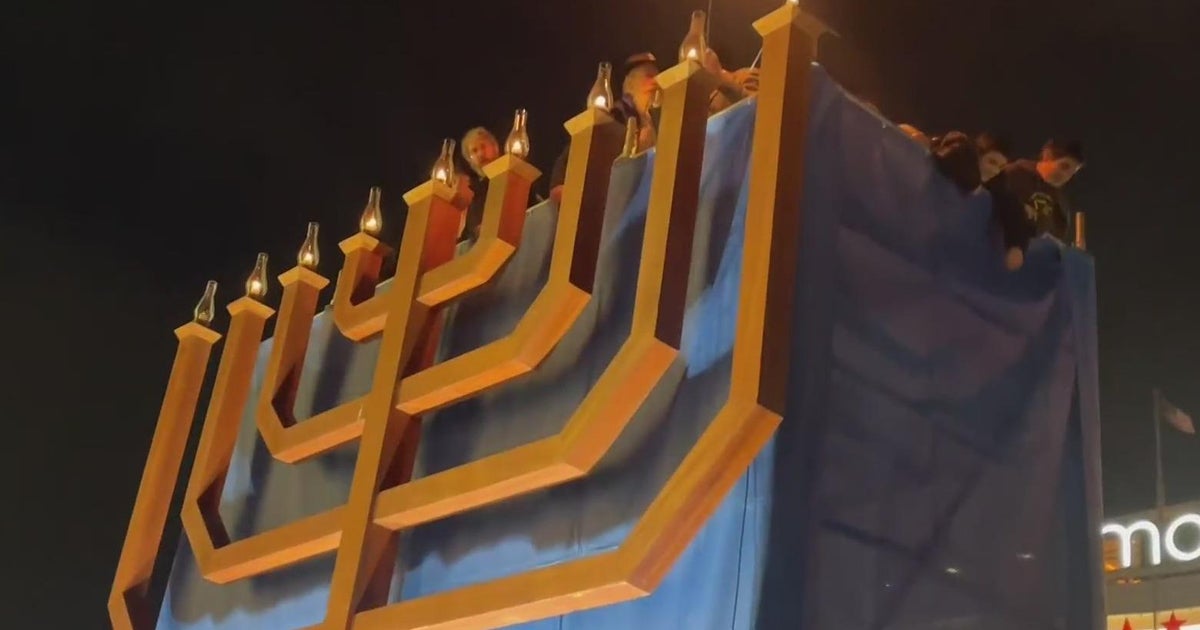Ohio Election Chief To Appeal Early Voting Ruling; Could Affect California Voters
SAN FRANCISCO (CBS/AP) -- Ohio's election chief said Tuesday he will appeal a ruling that reinstates the final three early voting days in the battleground state, calling a decision last week by a federal appeals court "an unprecedented intrusion" into how states run elections.
Secretary of State Jon Husted said he will ask the U.S. Supreme Court to decide whether the state Legislature or federal courts should set Ohio election laws.
Husted said Friday's decision by the 6th U.S. Circuit Court of Appeals would impact how elections are run in all 50 states. The appeals court in Cincinnati affirmed a lower court ruling and returned discretion to set hours on the final three days to local boards of elections.
"This ruling not only doesn't make legal sense, it doesn't make practical sense," Husted, a Republican, said in a statement.
He said it opened up the chance for Ohio's 88 county boards of elections to set different rules, while at the same time ordering that all voters be treated the same. Husted said he will be consulting with those boards to craft a directive that sets uniform hours on the three disputed days in the event his appeal isn't successful.
President Barack Obama's campaign and Democrats had sued Husted and Ohio's attorney general for cutting off early voting for most residents on the Friday evening before a Tuesday election. The law makes an exception for military personnel and Ohio voters living overseas.
Democrats had argued everyone should have the chance to vote on those three days. They said eliminating the opportunity for most Ohio residents to vote in person on those days, while giving military or overseas voters the chance to do so, led to unequal treatment.
The decision the 6th Circuit affirmed Friday came from U.S. District Judge Peter Economus in August. He said he expected Husted to direct all county elections boards to maintain a specific, consistent schedule on the three final days before Election Day.
Attorneys for the state said many laws already grant military personnel special voting accommodations, such as requirements for states to send absentee ballots to them 45 days before the election. And they contend local boards also need those three days to prepare for the election.
But Economus said the voters' right to cast ballots in person on those days outweighs the state's reasons for limiting that opportunity.
The judge issued a preliminary injunction on Aug. 31, concluding that the state's law was unconstitutional in changing the in-person early voting deadline and that the state was wrongly valuing certain votes above others.
Husted's announcement that he would go to the U.S. Supreme Court came on a day when Obama was campaigning in the state, timing a rally at the Ohio State University campus to the final day of voter registration.
Obama's fellow Democrats criticized Husted for fostering voter confusion. State Sen. Nina Turner, of Cleveland, said Husted could set uniform statewide hours on the final three days before the election if that is his goal.
Senate Democratic Leader Eric Kearney accused Husted of using delay tactics to impede voters' rights. "It is now clear that Secretary of State Jon Husted will stop at nothing to deny Ohioans full and equal access to the polls," he said.
Before the changes to the law, local boards of elections previously set early voting hours on the three final days. And weekday hours and weekend voting varied among the state's counties.
Democrats estimated in their lawsuit that 93,000 people voted during the final three-day window before the 2008 election.
(Copyright 2012 by CBS San Francisco. All rights reserved. This material may not be published, broadcast, rewritten or redistributed.)



